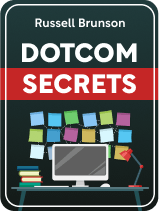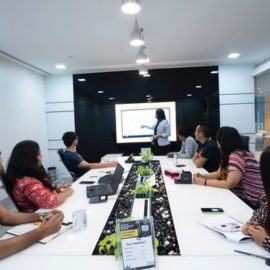

This article is an excerpt from the Shortform book guide to "Dotcom Secrets" by Russell Brunson. Shortform has the world's best summaries and analyses of books you should be reading.
Like this article? Sign up for a free trial here.
How does using a sales funnel help you make the most of your marketing spend? What is the best way to convert sales funnel leads?
According to Russel Brunson, the author of Dotcom Secrets, sales funnels are the most cost-efficient way to grow your sales. This is because sales funnels encourage your leads to spend more money, helping you to make the most of your ad spend.
Here’s how sales funnels can help you make the most of your leads.
Sales Funnels Get Each Customer to Spend More
Ideally, your sales funnels do more than turn website traffic into paying customers. They also get each customer to purchase more than they otherwise would have by getting your sales funnel leads to spend more at one time and encouraging them to return and buy again in the future.
Getting each customer to buy more is the secret to business growth, according to Brunson: Every new customer costs significant marketing expenses to acquire, but getting each customer to spend more gives you more revenue at no additional marketing expense, resulting in vastly more profit. These massive profits then allow you to spend more on marketing, creating a virtuous cycle in which every sale you make funds the acquisition of the next several sales. This empowers you to grow your business exponentially and dominate the market.
In contrast, most online businesses fail to achieve this virtuous cycle. Often, when businesses aren’t getting as much website traffic as they want, they make the mistake of trying to improve their marketing to get more leads. If they instead improved their sales funnels so each customer spent more, they could increase traffic to their website through heavier investment in marketing.
| Counterpoint: Focus on New Customers, Not Existing Customers In How Brands Grow, Byron Sharp provides a contrasting perspective to Brunson, arguing that instead of trying to get each customer to spend more, marketers should focus their efforts on advertising to new customers. He claims that mass data collection reveals companies can’t significantly increase how much each customer spends on their brand. According to Sharp, consumers will only buy something when they realize they need it, and any attempts to influence a customer to make a purchase they wouldn’t ordinarily have made is a waste of resources. Often, marketers believe that they’re successfully influencing a customer to spend more at one time, but in reality, the customer is just making purchases they would have made anyway. Additionally, Sharp asserts that you can’t create repeat customers by increasing brand loyalty, as people are inherently indifferent to the brands they buy. Rather, they just buy whatever brand they think of first and is the most convenient. With this in mind, Sharp recommends instead focusing your time and money on increasing brand presence so that when the time comes for a potential customer to make a purchase, they’ll think of your brand first. To do this, he suggests regularly running emotionally engaging advertisements with recognizable and consistent branding. This directly contradicts Brunson’s advice to focus more on improving your sales funnels than your advertising. |

———End of Preview———
Like what you just read? Read the rest of the world's best book summary and analysis of Russell Brunson's "Dotcom Secrets" at Shortform.
Here's what you'll find in our full Dotcom Secrets summary:
- What separates the million-dollar startups from the unprofitable failures
- Why your company's website should be organized as a sales funnel
- How to attract customers to your site and make a compelling marketing message






